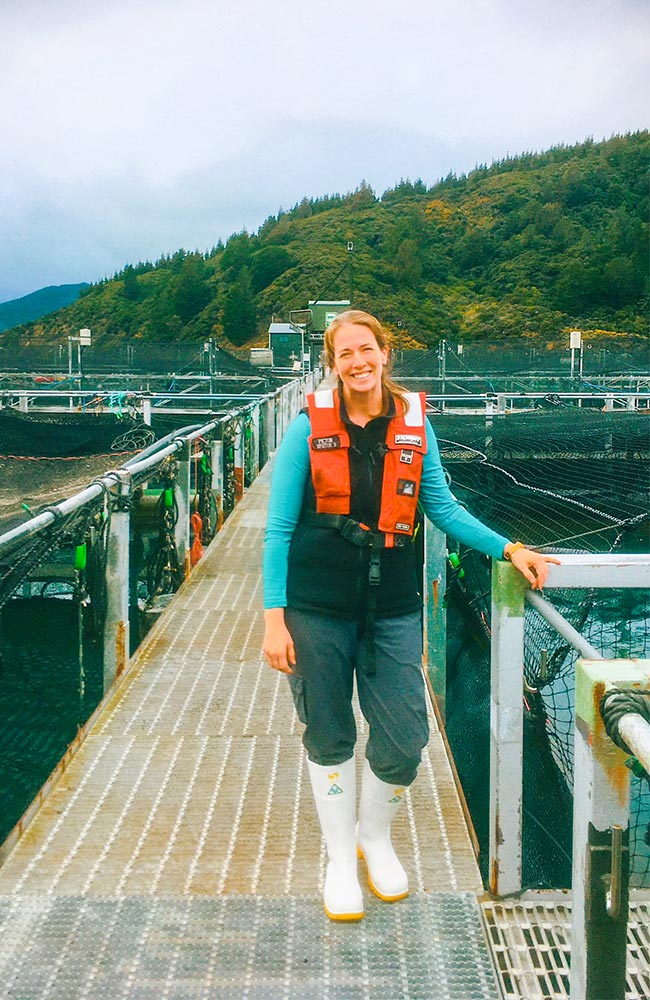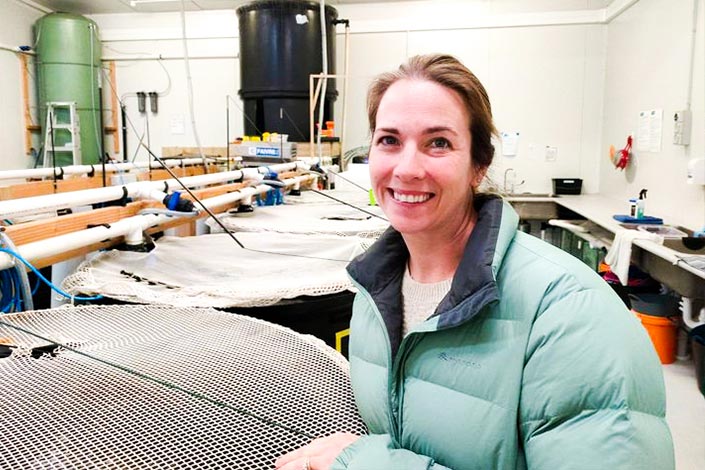
Jamie Bellamy fondly remembers the many family fishing trips she had growing up in Seattle, Washington.
“The walls in people’s hallways show pictures of uncles, brothers, and cousins holding huge salmon, says Jamie, “Everyone had a boat and fishing was almost a part of our culture.”
Fast forward 15 years and things are very different says Jamie.
“Nobody catches wild chinook anymore, the stocks are gone,” says Jamie.
“Overfishing is part of it, but the streams are getting too warm and can’t provide the proper substrate for eggs to hatch and survive as fry,” she says.
Back in 2000, Jamie graduated with a degree in ecology from the University of Arizona and was about to start work on salmon restoration habitats when the United States government imposed a job freeze.
“I had a job lined up in the mid-west working with salmon but the month I graduated there was a hiring freeze and the government cancelled all new positions.”
Jamie took up a teaching role in the interim and by the time the position reopened two years later, she was firmly entrenched in teaching science and engineering at an intermediate level.

In 2018, Jamie and her family arrived in New Zealand after her entomologist husband secured a research position in Motueka.
Jamie faced the decision to return to teaching or follow her original passion.
“I kept going back to what I wanted to do years ago which was the ecology and salmon side, so I thought aquaculture is just over the hill, so I’ll do that and see how it goes.”
Jamie enrolled in the Postgraduate Diploma in Sustainable Aquaculture(external link) and found the comprehensive nature of the programme to be exactly what she wanted.
“The first course was sustainable aquaculture practices(external link) and taught as one block by tutor Mark Burdess(external link), says Jamie, “It was nice because you lived and breathed that class.”
Jamie says the close connection with industry is an integral part of the programme.
“Mark has a really close connection with New Zealand King Salmon and does a lot of work with them,” says Jamie, “We also visited other industries including oyster farms, mussel hatcheries, and other salmon places to talk with people and find out what they’re doing and what issues they are trying to solve.”
As part of her studies, Jamie carried out a six-month research dissertation working alongside New Zealand King Salmon looking at net biofouling and its impact on salmon.
After graduating in November, Jamie hopes to secure a position working as part of a research and development team.
“I would really love to be on a team that’s designing solutions to salmon health issues.”
The Postgraduate Diploma in Sustainable Aquaculture is a one-year programme designed to provide you with integrated study and research opportunities in the areas of sustainable aquaculture practice and management.


